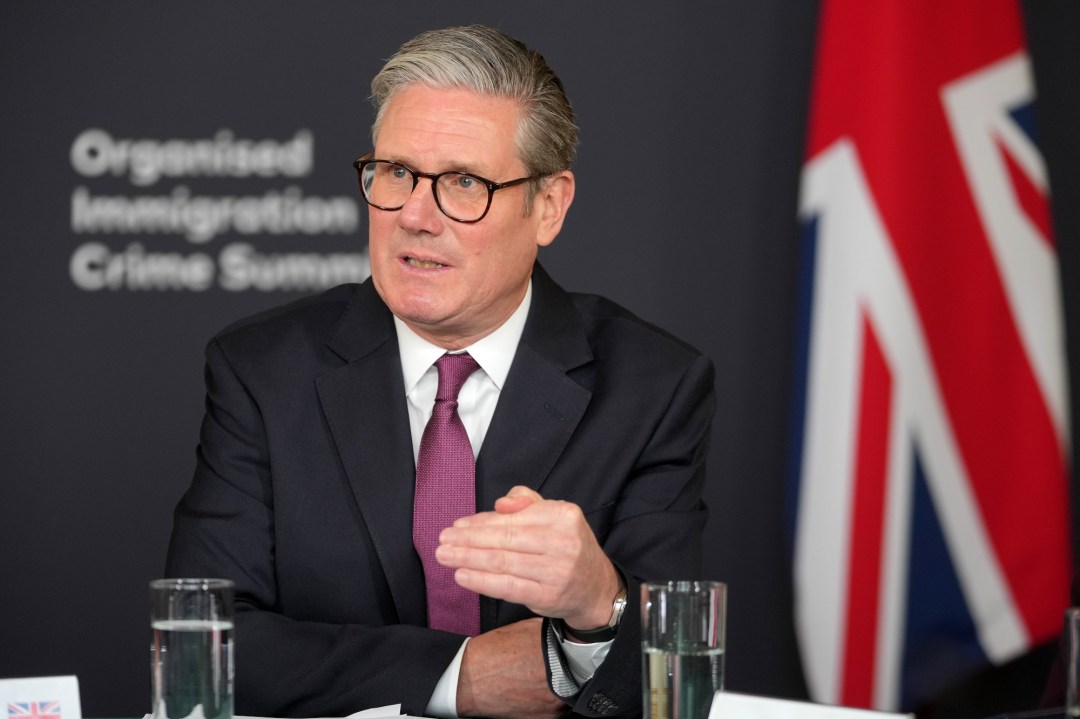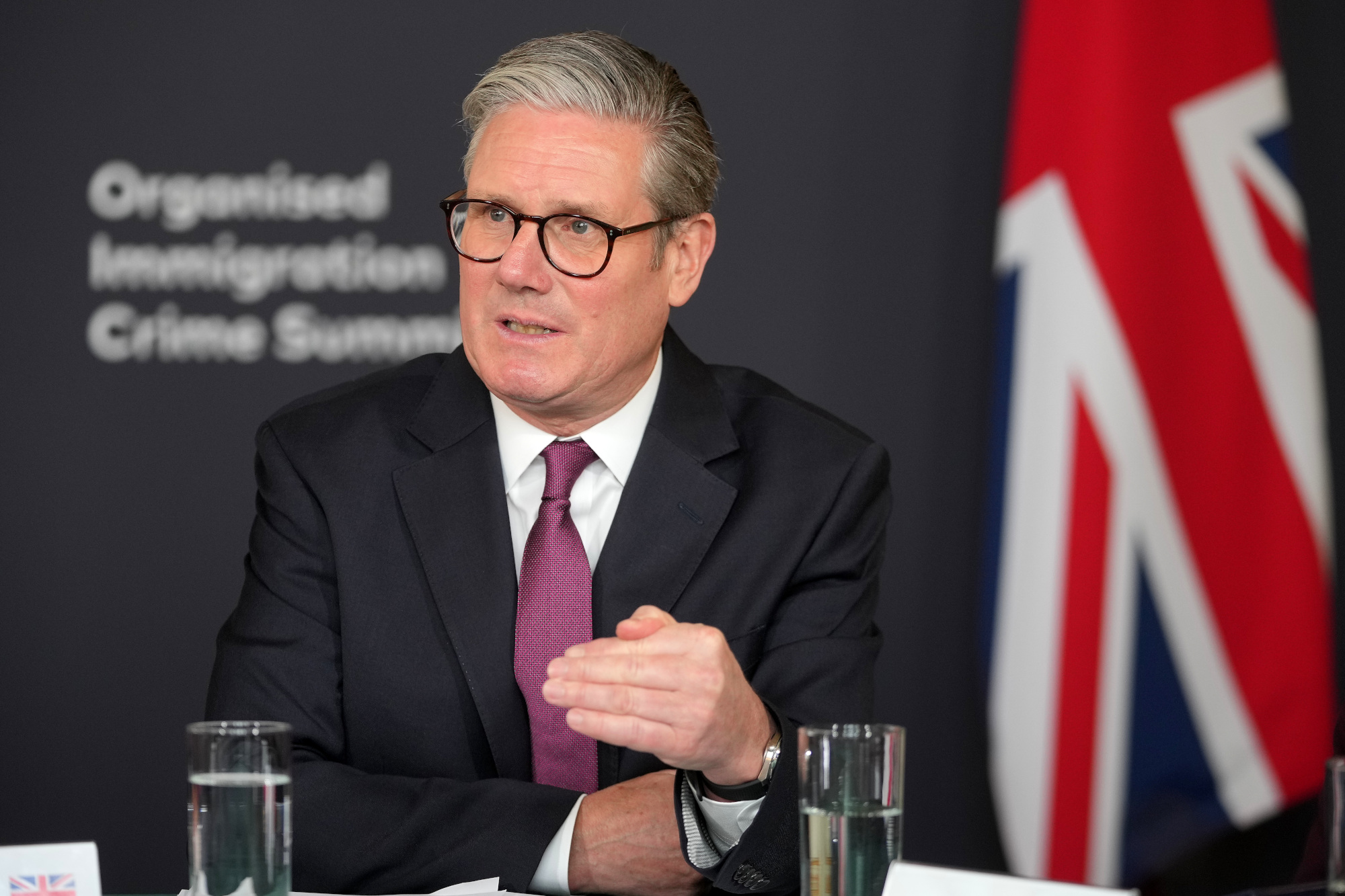The US government’s threat to scupper any trade deal with the UK unless we commit to widening free speech not only looks like a naked attempt to interfere with our internal affairs – it is one.
On Sunday, the US State Department unusually released a statement saying it was ‘monitoring’ the case of Livia Tossici-Bolt, who was charged after holding a sign saying ‘here to talk’ near an abortion centre. The Business Secretary Jonathan Reynolds denied this morning that free speech had been raised in the trade talks he’d been a part of, yet the Telegraph reports a source familiar with the negotiations believes there will be ‘no free trade without free speech’.
Keir Starmer needs to think long and hard before claiming that he will not be bullied by the White House and saying loftily that if necessary he is prepared to turn his back on Uncle Sam over this issue. If he does this, it could well come back to bite him.
The first point is the most obvious: Donald Trump (or rather J.D. Vance, who originally raised the free speech issue) is right about the UK’s backsliding on freedom of expression. This government is not simply indifferent to free speech: it is deeply suspicious of it. The idea of allowing ordinary people to say what they think without careful regulation frankly repels most Labour MPs. Moreover, one suspects most voters recognise this.
The evidence is there for all to see. Think Bridget Phillipson’s calculated emasculation of the Higher Education (Freedom of Speech) Act; ministers reportedly set to clamp down on silent prayer outside abortion clinics; and the thinly-disguised encouragement from government to come down hard on social media posts during the Southport riots.
Secondly, before shouting too loud about preserving the UK’s freedom from foreign interference in its internal affairs, Starmer could do worse than check some of his own party’s pronouncements when in opposition. In 2022 his then shadow trade secretary, Nick Thomas-Symonds, pontificated that it was crucial that ‘human rights, women’s rights and workers’ rights’ be ‘embedded’ in our own negotiations with third countries and access to our markets made conditional on them. A year later Labour’s National Policy Forum document ‘Britain and the World,’ introduced by Anneliese Dodds, demanded that our trade deals promote Labour values around the world, including human rights, workers’ rights, equality and the environment. So much for consistency.
Thirdly, it’s worth thinking for a moment about public relations. The US position at least comes across as liberal and principled. ‘As a matter of principle we object to any pressure to give people more freedom to speak their mind or to say what they really think, because we see it as dangerous’ is not a good political chat-up line, except perhaps in Beijing or Tehran. Nor, in the age of the internet, is the idea shared by too many in the British establishment, that free speech merely allows people to say very bad things, and therefore companies which provide them with a platform for expression need to be kept under strict state control.
More to the point, however, Starmer could do with a dose of realpolitik here. Isn’t the odd liberal concession to free speech a price worth paying for something that will avoid further impoverishing our country?
This is especially true because as regards the internet, which is what the US is seriously worried about, the views of the UK frankly don’t matter. In deciding what kind of material they are prepared to host, US internet behemoths might just take notice of the EU’s Digital Services Act: at least that represents a market of a cool half-billion rather than 60-odd million. Their domestic sites, secure under the protection of the First Amendment, will carry on just the same as before.
Nor in the long term, for all the trumpeting of Britain as the safest place to go online, will our strict domestic controls on the net keep people very safe. Those with any cyber-savvy – teenagers especially – are able to buy and run a VPN which will bypass any geographical restrictions. Faced with a Great British Firewall they would do so in large numbers, and moreover probably switch their attention to smaller, dodgier sites without even the scruples of Meta or X.
In short, Keir Starmer would be well advised to face down the English establishment and some of his own more authoritarian backbenchers, and reach a pragmatic solution with the US. It’s certainly worth it economically; Trump won’t be there forever; and Britons will be a tad more free. If one’s looking for a hill to die on, it’s always advisable to choose it carefully. If Starmer selects this one, we need to have serious doubts about his judgment.








Comments